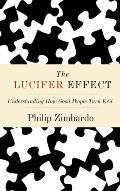
What makes good people do bad things? How can moral people be seduced to act
immorally? Where is the line separating good from evil, and who is in danger of
crossing it?
Renowned social psychologist Philip Zimbardo has the answers, and inThe
Lucifer Effecthe explains how–and the myriad reasons why–we are all
susceptible to the lure of “the dark side.” Drawing on examples from history as
well as his own trailblazing research, Zimbardo details how situational forces
and group dynamics can work in concert to make monsters out of decent men and
women.
中文版
在哪儿买《The Lucifer Effect: Understanding How Good People Turn Evil (Hardcover)》.....
作 者:Philip Zimbardo
出版社:Random House (March 27, 2007)
ISBN:1400064112
定 价:27.95元
原版链接:The
Lucifer Effect: Understanding How Good People Turn Evil (Hardcover)
简介
Zimbardo is perhaps best known as the creator of the Stanford Prison
Experiment. Here, for the first time and in detail, he tells the full story of
this landmark study, in which a group of college-student volunteers was randomly
divided into “guards” and “inmates” and then placed in a mock prison
environment. Within a week the study was abandoned, as ordinary college students
were transformed into either brutal, sadistic guards or emotionally broken
prisoners.
By illuminating the psychological causes behind such disturbing metamorphoses,
Zimbardo enables us to better understand a variety of harrowing phenomena, from
corporate malfeasance to organized genocide to how once upstanding American
soldiers came to abuse and torture Iraqi detainees in Abu Ghraib. He replaces
the long-held notion of the “bad apple” with that of the “bad barrel”–the idea
that the social setting and the system contaminate the individual, rather than
the other way around.
This is a book that dares to hold a mirror up to mankind, showing us that we
might not be who we think we are. While forcing us to reexamine what we are
capable of doing when caught up in the crucible of behavioral dynamics, though,
Zimbardo also offers hope. We are capable of resisting evil, he argues, and can
even teach ourselves to act heroically. Like Hannah Arendt’s Eichmann in
Jerusalem and Steven Pinker’s The Blank Slate,The Lucifer Effectis a
shocking, engrossing study that will change the way we view human behavior.
web link
http://www.lucifereffect.org
http://www.zimbardo.com/
背景介绍
http://blog.psychspace.com/bbs/Announce/announce.asp?BoardID=30&ID=365&AUpflag=1&ANum=1
编辑推荐
Psychologist Zimbardo masterminded the famous Stanford Prison Experiment, in which college students randomly assigned to be guards or inmates found themselves enacting sadistic abuse or abject submissiveness. In this penetrating investigation, he revisits—at great length and with much hand-wringing—the SPE study and applies it to historical examples of injustice and atrocity, especially the Abu Ghraib outrages by the U.S. military. His troubling finding is that almost anyone, given the right ""situational"" influences, can be made to abandon moral scruples and cooperate in violence and oppression. (He tacks on a feel-good chapter about ""the banality of heroism,"" with tips on how to resist malign situational pressures.) The author, who was an expert defense witness at the court-martial of an Abu Ghraib guard, argues against focusing on the dispositions of perpetrators of abuse; he insists that we blame the situation and the ""system"" that constructed it, and mounts an extended indictment of the architects of the Abu Ghraib system, including President Bush. Combining a dense but readable and often engrossing exposition of social psychology research with an impassioned moral seriousness, Zimbardo challenges readers to look beyond glib denunciations of evil-doers and ponder our collective responsibility for the world's ills. 23 photos. (Apr. 3)
CONTENTS
Preface
Acknowledgments
List of Illustrations
Chapter 1. The Psychology of Evil: Situated Character Transformations
Chapter 2. Sunday's Surprise Arrests
Chapter 3. Let Sunday's Degradation Rituals Begin
Chapter 4. Monday's Prisoner Rebellion
Chapter 5. Tuesday's Double Trouble: Visitors and Rioters
Chapter 6. Wednesday Is Spiraling Out of Control
Chapter 7. The Power to Parole
Chapter 8. Thursday's Reality Confrontations
Chapter 9. Friday's Fade to Black
Chapter 10. SPE's Meaning and Messages: The Alchemy of Character Transformations
Chapter 11. SPE's Ethics and Extensions
Chapter 12. Investigating Social Dynamics: Power, Conformity, and Obedience
Chapter 13. Investigating Social Dynamics: Deindividuation, Dehumanization, and
the Evil of Inaction
Chapter 14. Abu Ghraib's Abuses and Tortures: Understanding and Personalizing
Its Horrors
Chapter 15. Putting the System on Trial: Command Complicity
Chapter 16. Resisting Situational Influences and Celebrating Heroism
CHAPTER NOTES

(M.C. Escher: Devils and Angels illusion)
The Lucifer Effect raises a fundamental question about the nature of human
nature: How is it possible for ordinary, average, even good people to become
perpetrators of evil? In trying to understand unusual, weird or aberrant
behavior, we often err in focusing exclusively on the inner determinants of
genes, personality and character, as we also tend to ignore what may be the
critical catalyst for behavior change in the external Situation or in the System
that creates and maintains such situations.
This book is unique in many ways. For starters, it provides for the first time a
detailed chronology of the transformations in character that took place during
the experiment I created many years ago that randomly assigned healthy, normal
intelligent college students to play the roles of prison or guard in a projected
2 week-long study. I was forced to terminate the study after only 6 days because
it went out of control, pacifists were becoming sadistic guards, and normal kids
were breaking down emotionally. By telling that story in a new way, as my
personal, first-person observation in present tense, it becomes like a screen
play filled with ever more amazing twists and turns as the situational forces
are pitted against individual will to resist and the collective will to rebel
against oppressive authority. In a sense, this study and how I am reporting its
narrative, is a forerunner of reality TV, as we see ordinary people up close and
personal day in and night out, become transformed into something disturbing.
This tale of agony and transformation in a crucible of human nature is developed
slowly and richly over eight chapters, following the opening chapter that
explains the Lucifer Effect as the cosmic transformation of God's favorite
angel, Lucifer, into Satan as he challenges God's authority. We shall here be
considering less dramatic transformations, but all on a human scale that
potentially can engage any of us. I lay the groundwork for the rest of the book
by vivid descriptions of torture in the Inquisition, rape and terror in Rwanda
and Nanking, and other venues where human nature has run amok. I also provide
the initial scaffolding for how the Stanford Prison Experiment may help us make
sense of the abuse and torture of prisoners by American Military Police in
Iraq's infamous Abu Ghraib prison.
Second, after this narrative, with minimal psychologizing, we consider the
conceptual contributions and research findings from many domains that validate
the assertion of situational power over individual dispositions. I review
classic and some new research on, conformity, obedience to authority,
role-playing, dehumanization, deindividuation and moral disengagement. We
consider the “evil of inaction” as a new form of evil that supports those who
are the perpetrators of evil.
Two chapters are inserted between my telling the tale of 'the little shop of
horrors' that I created in the basement of Stanford's psychology department and
these twin chapters (12 & 13) on the social science foundations for
understanding how powerful but subtle situational forces can seduce people into
evil. In chapters 10 and 11, we want to know more about the broader meaning of
the Stanford Prison Experiment, (SPE): What evidence was collected besides the
observations the reader has looked in on? What does it mean, what are the
take-home messages from this research? What about the ethical considerations
raised by this research that is surely "ethically sensitive," to say the least?
A Google search for the word "experiment" uncovers a remarkable phenomenon: out
of roughly 300 million results, the Stanford Prison Experiment web site ranks
first! For the word "prison," the SPE web site ranks number two out of more than
150 million results worldwide -- second only to the U.S. Federal Bureau of
Prisons.
That notoriety of this study is traced to examine extensions and replications of
the SPE in research, the media, and recently as an art form, with critical
analyses of the good and the bad directions that have been taken.
Next, the book is unique in systematically applying the lessons learned from the
SPE and social science research to a new understanding of the abuses at Abu
Ghraib (chapter 14). I do this by integrating my psychological expertise with my
special expertise gained by being an expert witness for one of the accused
Military Policemen involved in the abuses, Sgt Ivan "Chip" Frederick. I have
gotten to know him well and switched my roles into that of investigative
reporter as I tracked down his performance evaluations as prison guard in the
states, the basis of his 9 medals and awards, corresponding with his wife,
Martha and sister, Mimi, and engaging psychologists to provide personality and
pathology assessments. I have also been able to get special insights into the
nature of that horrid prison from military officers who have worked there. As an
expert witness, I also had access to many of the independent investigations into
these abuses and all of the digitally documented images of depravity that took
place on Tier 1A Night Shift. So in putting Chip Frederick on trial, I give a
detailed depiction of what it was like to walk in his boots for 12-hour night
shifts without a day off for 40 straight nights.
Chip got sentenced to an 8-year hard time in military prison, dishonorably
discharged, disgraced and deprived on his 22 years of retirement savings,
divorced by his wife and is now nearly broken. We see his transformation from
good guard to bad guard to prisoner as one instance of the Lucifer Effect. But
now in Chapter 15, it is my turn to again shift roles and become the prosecutor
who puts the System on trial, the Military Command and the Bush Administration
for their complicity in being part of the System that created and maintained
this and other torture-interrogation centers across many military prisons. Using
the many official independent investigative reports as my sources, all of which
I have read carefully, I document what they tell us about the seminal cause of
the abuses in the Leadership that was dysfunctional, irresponsible, conflicting
or just absent.
After laying out the extent to which the abuses at Abu Ghraib paled in
comparison to the more extremely violent and lethal torture and abuses in many
other military sites, with testimonies of soldiers who actually took part in
them, it is time for the reader as juror to decide was it just the work of those
7 "bad apples," or that of a corrupt system, a "rotten barrel," that has
sacrificed basic human values of rule of law, honesty, and support of the Geneva
Conventions for its obsession with the so-called "war on terror."
Wow, this is a lot of negative stuff coming down! But optimism is around the
corner. I end Chapter 15 with an encouraging story of how an Army Colonel, a
military psychologist friend, of mine, took the DVD of my prison study to Abu
Ghraib as a training device to teach the new guards about the corrosive effects
of the power in their hands in that remote place. He was sent there to develop
new procedures to prevent the recurrence of such abuses—and has done so
effectively.
Then the sun shines and lights up the dungeons we have been inhabiting for the
past 15 chapters in our final chapter 16. Although most people succumb to the
power of situational forces, not all do. How do they resist social influence?
What kinds of strategies might help the reader to become inoculated against
unwanted attempts to get him or her to conform, comply, obey, and yield? I
outline a 10-step generic program to build resistance to mind control strategies
and tactics. There is also a unique presentation of a thought experiment to
involve people in engaging in progressively greater degrees of altruistic deeds
that promote civic virtue.
Given that the majority of people in my research and those of my colleagues are
impacted by situational forces, it is the minority, the rare person, who
resists. I consider them to be heroes. So I end this long journey with a new
understanding of what it means to be heroic. We celebrate heroes and heroism as
part of new taxonomy that I have developed, which identifies 12 different hero
types, with criteria and exemplars, The first such exemplar takes us back to the
SPE with Christina Maslach, the young woman who forced me to terminate the
experiment (and who I later married and is the mother of our two daughters). The
second is Pvt. Joe Darby, the Abu Ghraib whistle blower who exposed the abuses
and tortures taking place, and forced their termination. No one has ever
elaborated on the nature of heroism as I have here. Finally, we end with a novel
twist to our long tale. After considering "The banality of evil" as everyman and
every woman's potential for engaging in evil deeds despite their generally moral
upbringing and pro-social life style, like Adolph Eichmann, I introduce the new
concept of: "The Banality of Heroism."
Heroes come in two main casts; life-long heroes, like Nelson Mandela, Martin
Luther King, Gandhi, Mother Teresa, and heroes of the moment, such as, whistle
blowers, those who perform sudden acts of bravery on the battle field, or of
spontaneous courage on the home front. Those heroes of the moment typically have
never before done anything else that was memorable, but they responded to the
call to service when they heard it. So any of us may become heroes by being
ready to do the good thing, to help others in need when the situational demands
give us that rare opportunity. I end with that challenge: When the time comes
for you to act the part of the hero, will you be ready for the casting call?
(As a consequence of writing this book and beginning to focus on the positive
side of human nature- the heroic imagination--I have begun new research designed
to understand the heroic decision at the time of taking a heroic stand against
unjust authority; and also to develop a new web site devoted to celebrating
heroes and heroism.)

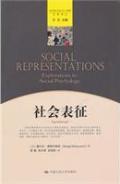
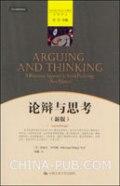
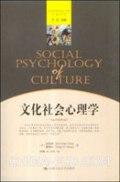
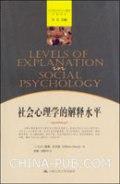

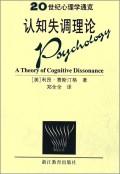
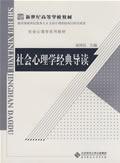
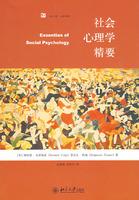
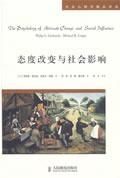

最新评论